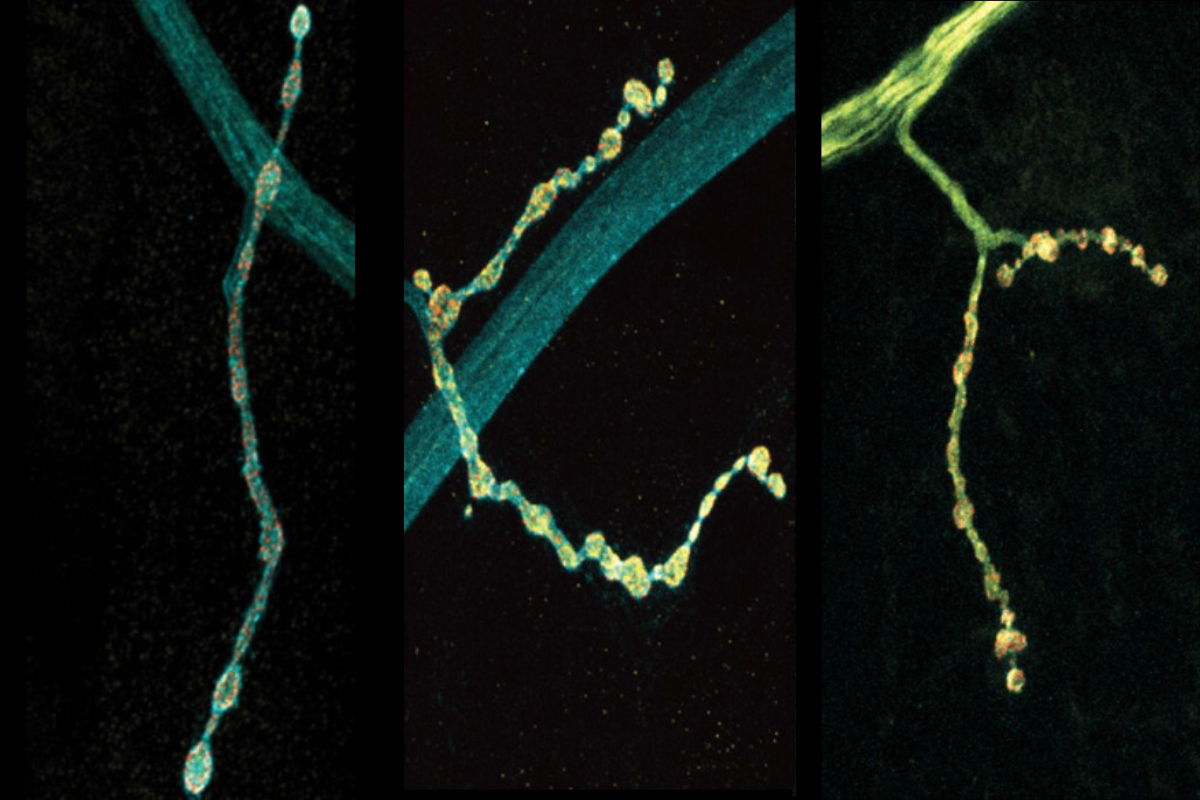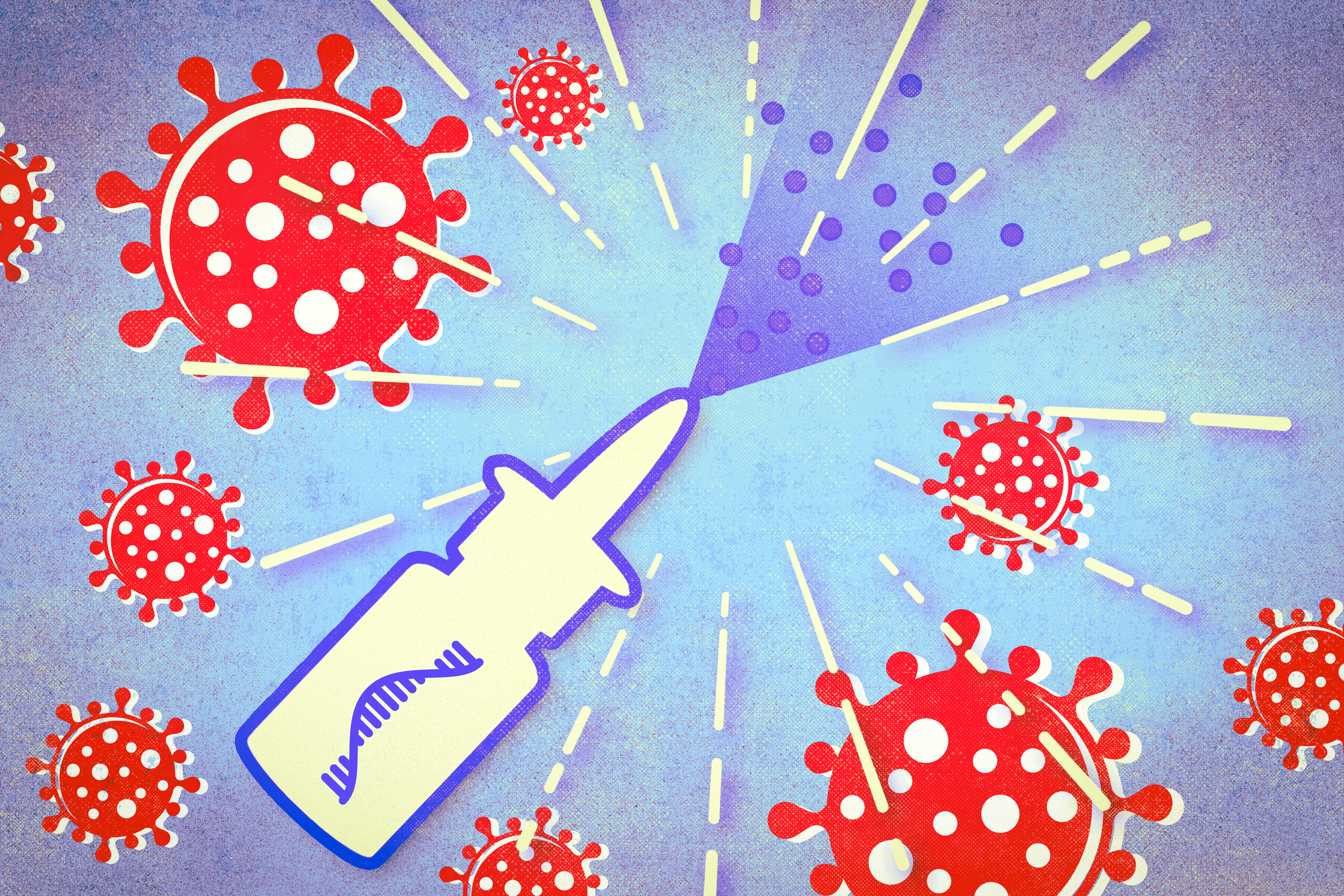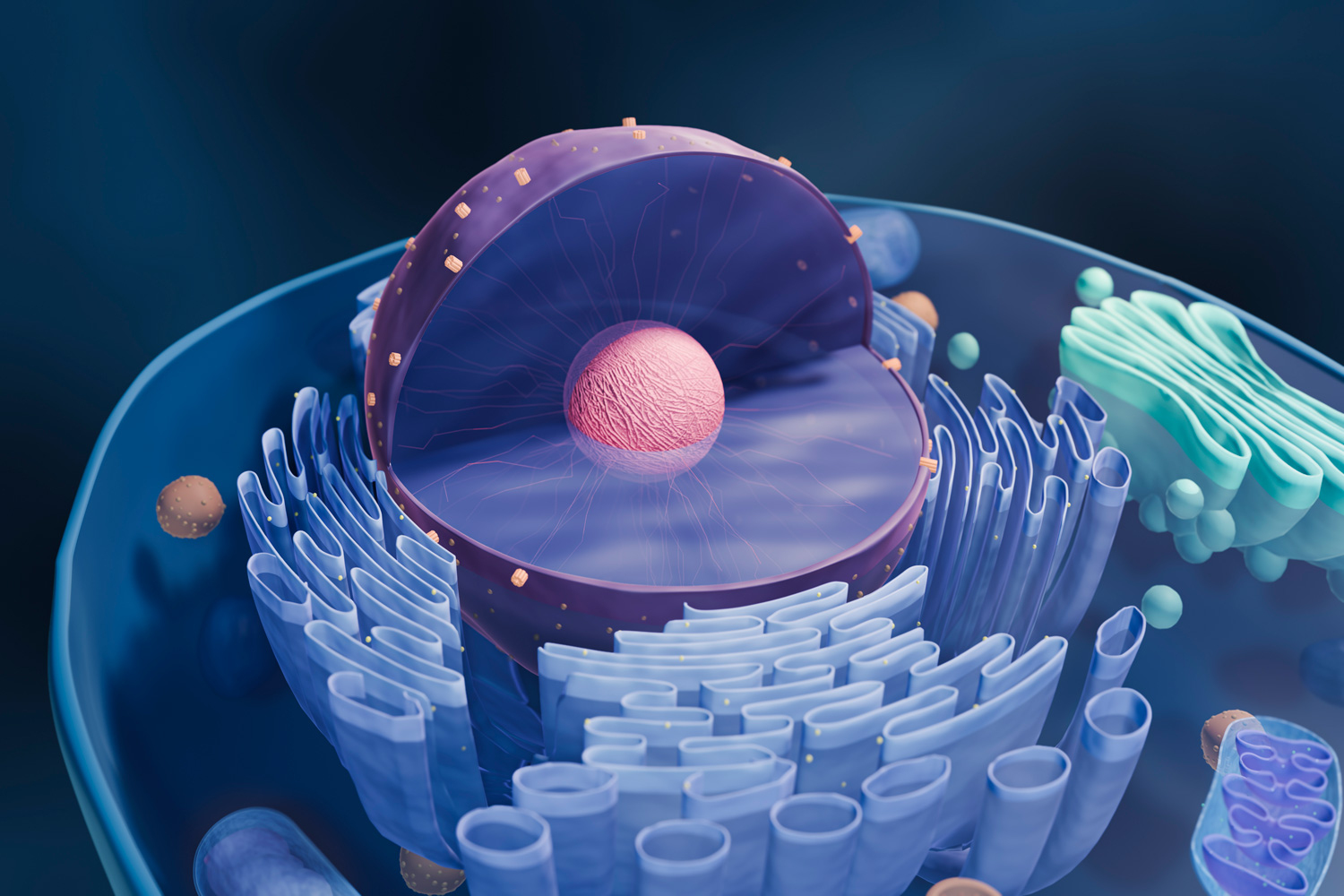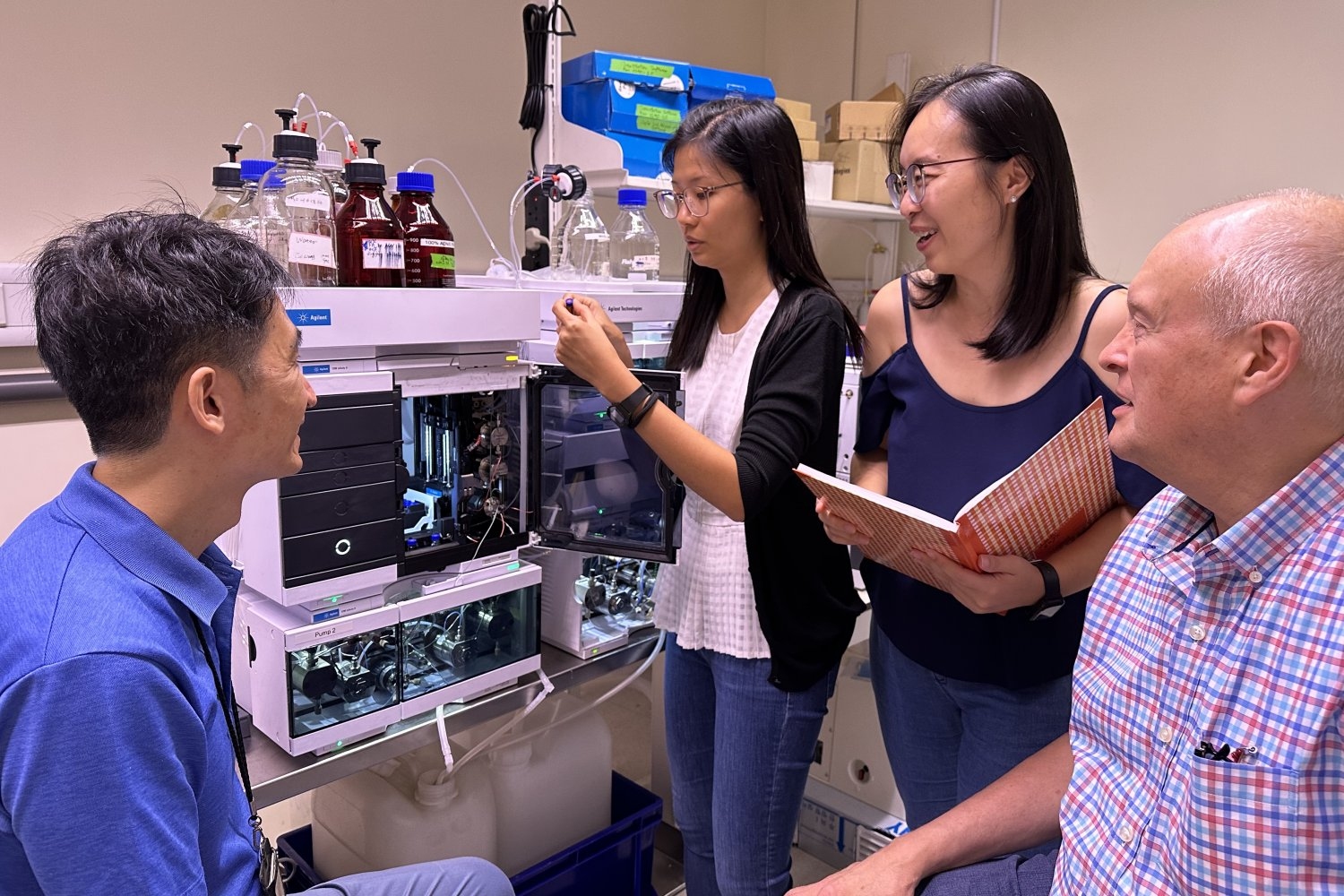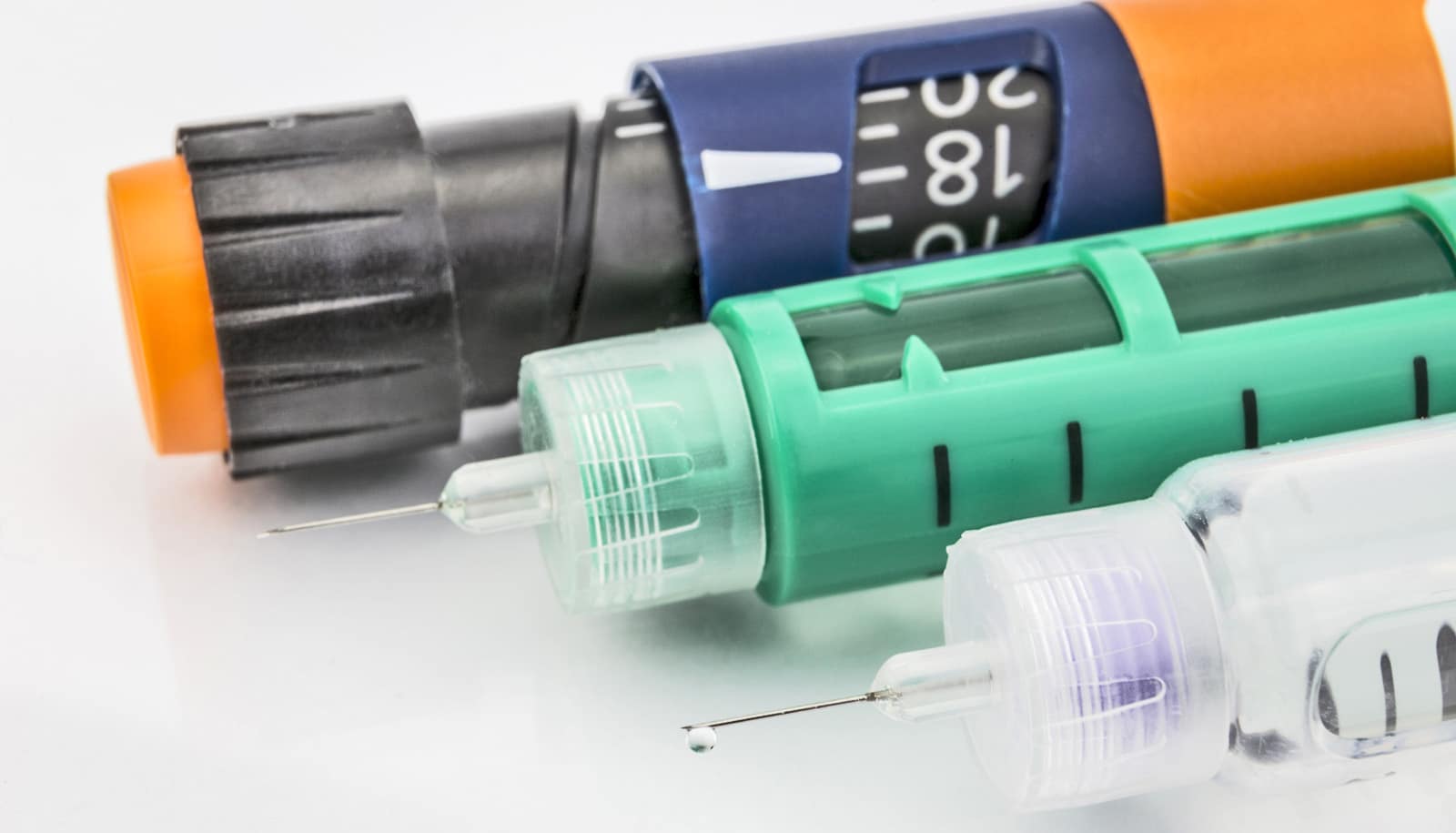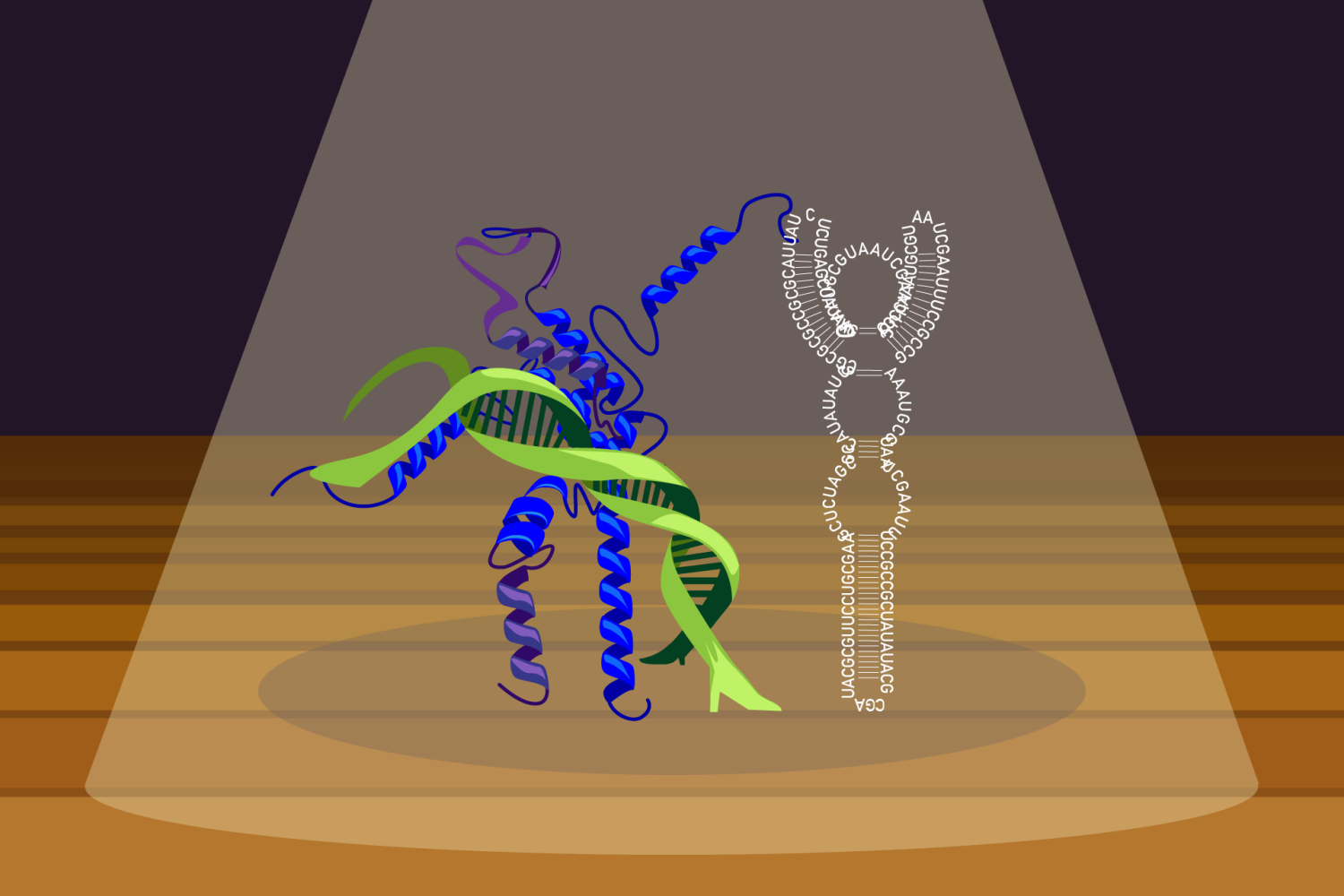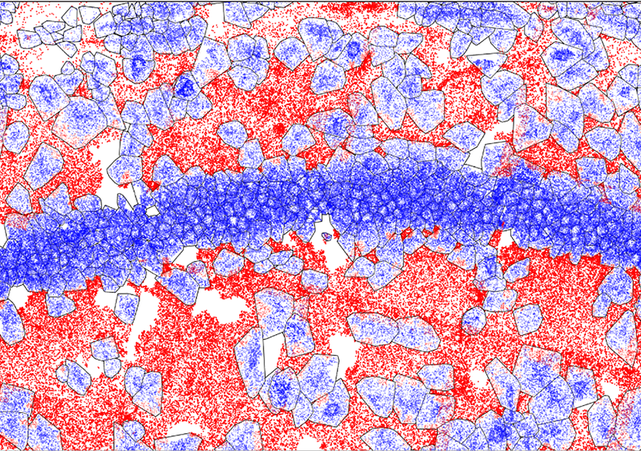Individual neurons mix multiple RNA edits of key synapse protein, study finds
Neurons stochastically generated up to eight different versions of a protein-regulating neurotransmitter release, which could vary how they communicate with other cells.
Sept. 25, 2023 • ~7 min
Study connects neural gene expression differences to functional distinctions
Researchers compared a pair of superficially similar motor neurons in fruit flies to examine how their differing use of the same genome produced distinctions in form and function.
Aug. 25, 2023 • ~8 min
Your genetic code has lots of 'words' for the same thing – information theory may help explain the redundancies
Many of the amino acids that make up proteins are encoded by genetic material in more than one way. An information theorist explains how principles of nature may account for this variance.
July 27, 2023 • ~7 min
It takes three to tango: transcription factors bind DNA, protein, and RNA
Whitehead Institute researchers find many transcription factors bind RNA, which fine-tunes their regulation of gene expression, suggesting new therapeutic opportunities.
July 17, 2023 • ~7 min
Scientists pinpoint where thousands of individual proteins are made in intact tissue and single cells
A new technology called RIBOmap can give researchers valuable insight into how protein production in animal and human tissue is altered in disease.
July 14, 2023 • ~6 min
/
16


